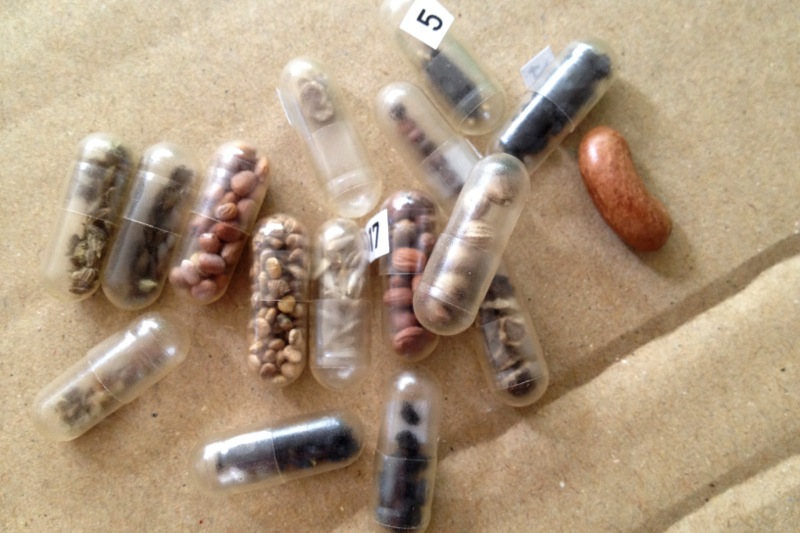Agroecology – the science of sustainable agriculture – offers a new and positive perspective for the creation of sustainable food systems. We argue that, from the outset, it is important to involve citizens in this development to create the necessary, bottom-up support for this change in agriculture and to re-establish the ties between food production and consumption. We see new opportunities to include them in the planning, monitoring and evaluation of agro-ecosystems through Human Computation and Citizen Science. In the P2P Food Lab project, we also seek new ways to engage them more creatively by setting up a shared online/offline platform in which they can learn, practice, innovate, and share observations on agroecological techniques.
CitizenSeeds is an experiment in which a group of participants grow a selection of seeds on a small surface of 1m2. They document the plant growth using sensor data and weekly pictures. The associated web site is used to share this data and stimulate collaborative practices. The long term goal is to evolve this platform into a tool to educate about agroecology, to stimulate playful innovation through shared challenges, and involve citizens in agroecological research.
In our first experiment, during Summer 2014, we developed a “Starter Kit” for micro-agriculture that consisted of a small, Internet-connected greenhouse. A sensor box was placed inside the greenhouse that took daily images of the crops and measured the air temperature, air humidity, and sunlight. The sensor box was built using off-the-shelf components such as Arduino, Raspberry Pi and standard webcams. The goal of the connected greenhouse was to create an online social network of participants and gardeners, and use the sensors for the evaluation of plant growth.

From left to right: 1) The first P2P Food Lab greenhouse near Paris, 2) Subsequent version of the greenhouse in Brussels, 3) Sensor box with camera, 4) Screenshot from the web site, 5) Time-lapse of the radishes and weather data, 6) Children from participating school near Paris.
The Starter Kit was a stepping stone that helped us develop the sensor technology. However, the project but had several drawbacks. First, the kit was too complex to build and too expensive to engage many people. Secondly, we needed to give participants clearer guidelines if we wanted to obtain reusable data. To achieve this, we simplified the requirements for participation in Summer 2015, in the new experiment called “CitizenSeeds”.
In “CitizenSeeds”, participants only needed a mobile phone equipped with a camera and a 1m2 plot of land, either on plain soil or in a raised bed. We also defined a collection of seeds to plant and a fixed shared planting schedule. These two elements greatly help in aligning the participants, comparing the data, and stimulating social
interaction. To measure the environmental data (photosynthetically active radiation, air temperature, soil humidity) the participants had the option to use the Flower Power device produced by the company Parrot. They also had the possibility to buy soil for their plot to normalise the substrate used in the experiment. Few participants chose this option, however.
Participants are asked to upload photos of their plot and the vegetables once a week. About 80 people registered of whom about 30 contributed to the experiment. A single web page displays the states of the plots and the environmental data of the community (See https://p2pfoodlab.net/CitizenSeeds/experiments/6.html).

From left to right: 1) The seeding calendar, 2) A 1.2 x 1.2m plot with seedlings, 3) Matrix of photos uploaded by participants, 4) Visualisation of recorded environmental data.



